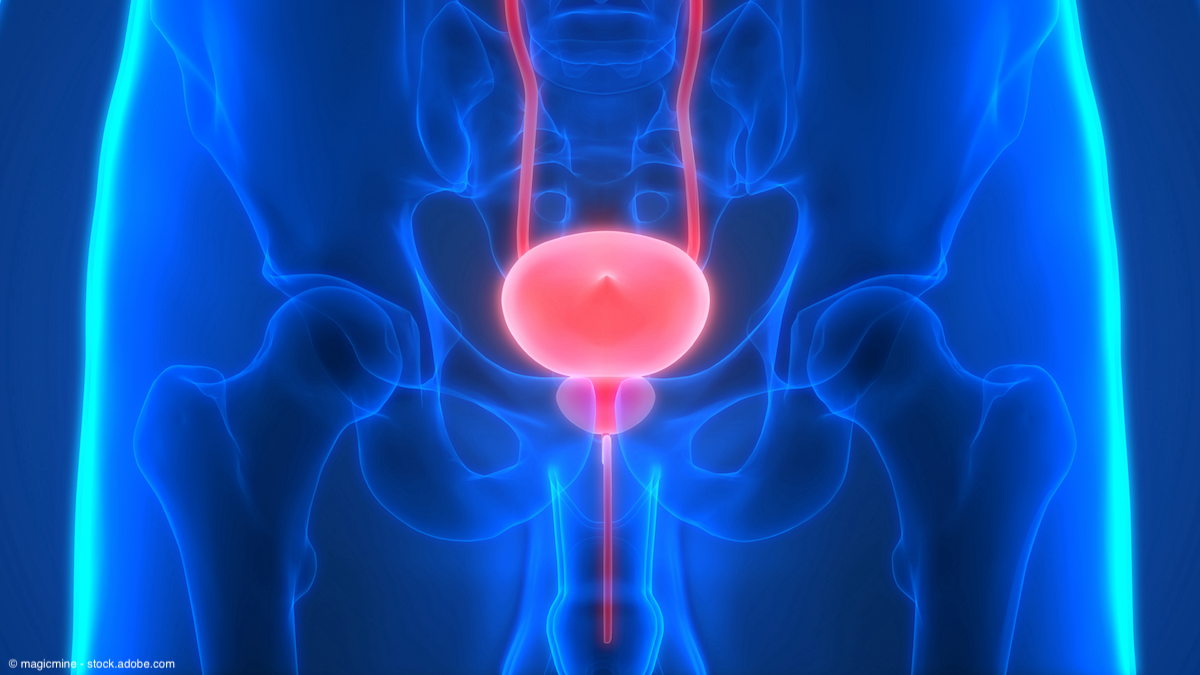Investigators prepare for first-in-human bladder transplant study
"Our study is the first report of bladder auto-transplantation in heart-beating, brain-dead human research donors as a necessary preparatory step toward clinical bladder transplantation in living patients," says Inderbir S. Gill, MD.
A series of preclinical studies exploring robotic bladder transplantation have laid the groundwork for a first-in-human phase 0 feasibility trial (NCT05462561) of the procedure.1,2
The investigators performed robotic autotransplantation in 3 porcine models, 2 human cadavers, and 5 heart-beating, brain-dead human donors.

Investigators at the University of Southern California, Los Angeles conducted vascularized composite bladder allograft (VCBA) transplantation in living animal models, human cadaver models, and heart-beating, brain-dead donor models to develop techniques for in-human transplants. The data were published in the Journal of Urology.
"Our study is the first report of bladder auto-transplantation in heart-beating, brain-dead human research donors as a necessary preparatory step toward clinical bladder transplantation in living patients," said co-author Inderbir S. Gill, MD, in a news release on the findings.2 Gill is the chairman and professor of the department of urology in the Keck School of Medicine at the University of Southern California, Los Angeles.
For the studies, the investigators performed robotic autotransplantation in 3 porcine models, 2 human cadavers, and 5 heart-beating, brain-dead human donors. Successful robotic VCBA transplantation (defined as adequate, sustained vascularized composite bladder allograft reperfusion) was achieved in 2 porcine models, 1 cadaver, and 3 human donors.
Each successive surgery with the human donors had a reduced console and operative time. Overall, console time decreased from 10.5 hours to 4.7 hours, and operative time decreased from 11.2 hours to 5.3 hours across the 5 donors.
The heart-beating, brain-dead models also demonstrated “healthy revascularized autografts with prompt, global indocyanine green immunofluorescence uptake,” according to the authors.1 One model was maintained on life support for an additional 12 hours post-operatively and was found to have sustained VCBA perfusion and adequate bladder mucosal integrity upon assessment at 12 hours.
Based on these initial results, the authors suggest that this procedure may become a viable treatment option for appropriately selected patients in the future.
They wrote, “Potential candidates for bladder transplantation would include highly selected patients who develop terminal neurogenic or chronic inflammatory bladder pathology, or refractory/recurrent infections or bladder stones either in the post-transplant immunosuppressed setting, or with anticipated future transplantation and imminent immunosuppression.”
However, they also noted remaining questions on the potential for this procedure in humans, including long-term viability of the transplanted bladder and patient acceptance over current standards.
Phase 0 feasibility study
The phase 0 first-in-human study3 (NCT05462561) plans to explore the feasibility of the transplantation procedure in 5 appropriately selected patients with terminal bladder pathology. Transplantation will occur in 1 patient, and following success of the procedure at 3-month follow-up, 4 additional patients will be accrued.
The primary outcome is successful VCBA transplantation, defined as appropriate vascularization of the transplanted bladder. Success at 3 months is defined as the absence of life-threatening complications and adequate bladder storage.
Adverse events, the immunosuppression regimens, and bladder functionality will also be assessed. All procedures will be conducted via a robotic surgical approach.
References
1. Nassiri N, Cacciamani G, Gill IS. Robotic bladder autotransplantation: Preclinical studies in preparation for first-in-human bladder transplant. J Urol. Published online September 8, 2023. Accessed September 13, 2023. doi:10.1097/JU.0000000000003620
2. Bladder transplantation in humans? Initial studies to develop technique. News release. Wolters Kluwer Health: Lippincott. September 8, 2023. Accessed September 13, 2023. https://www.newswise.com/articles/bladder-transplantation-in-humans-initial-studies-to-develop-technique?ta=home
3. National Institutes of Health US National Library of Medicine ClinicalTrials.gov. Vascularized Composite Bladder Allograft Transplantation. Last updated September May 6, 2023. Accessed September 13, 2023. https://clinicaltrials.gov/study/NCT05462561
Study set to explore the impact of peer-support for patients undergoing gender-affirming surgery
July 21st 2023"Extra support from trusted peers can help make navigating complex health care systems easier for transgender patients, who often have to wait years before receiving gender-affirming genital surgery—while also managing the stress and trauma associated with being part of a society that often doesn’t accept non-conforming gender expression,” says Geolani Dy, MD, FACS
